Tuk Tuk Tours
Explore Bangkok by the iconic tuk tuk
Just like any country in the world, Thailand’s culture comes with its own set of customs and habits that can often be baffling to those encountering them for the first time. While those who live here or visit frequently quickly become accustomed to many of these Thai customs, they can easily prove perplexing to the first-time tourist fresh off the plane.
To help you prepare yourself for your first visit to Thailand, here’s our round-up of of some of the Thai habit and customs that you may witness.
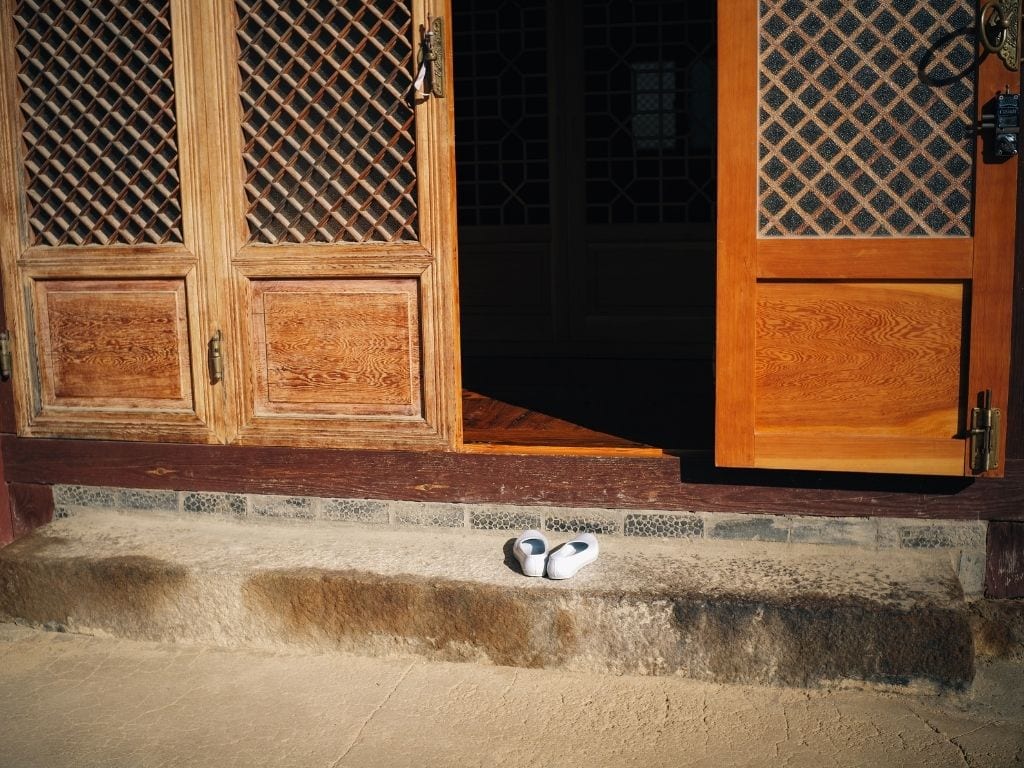
In Thailand, it’s common practice to remove your shoes before entering someone’s home, temples, and sometimes shops. It’s because your shoes have come into contact with the dirty ground outside. They are best left at the door to keep the inside of the home clean.
This makes even more sense when you consider that traditionally Thais like to sit on the floor rather than on chairs. A large proportion of the population still do so today. Also, don’t be surprised if Thais head to the bathroom immediately on arriving home in order to wash their feet. It is just another habit that’s intended to keep the home clean. Also, it is considered a courtesy to those around you.
Not sure whether to take off your shoes before entering a building? Just look for that tell-tale heap of shoes at the entrance, and follow everyone else’s lead!
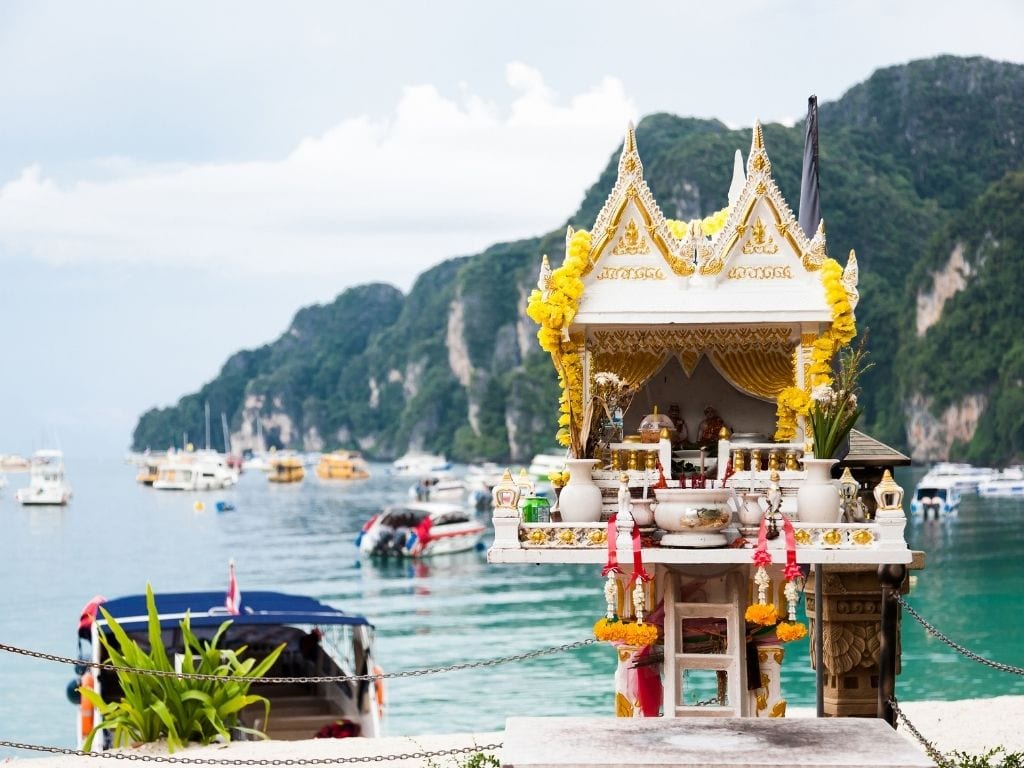
You might often see a small, elevated house-like structures made of wood or stone, at the entrance of a house and a building. It is a house of good spirits which are believed will protect you from evils. As such, to keep them happy, Thais will leave offerings at the foot of miniature ladders up to these spirit houses. Examples of offerings are food, drinks (red Fanta is said to be the spirit’s favorite), and garlands. Moreover, while driving past large roadside spirit houses, drivers will honk their horns to pay respect to them.
Many of these superstitious beliefs stem from a form of animism that has long been prevalent in Thailand. Strictly speaking, they are distinct from the religious beliefs of the majority-Buddhist population. Though these days many people consider them one and the same.
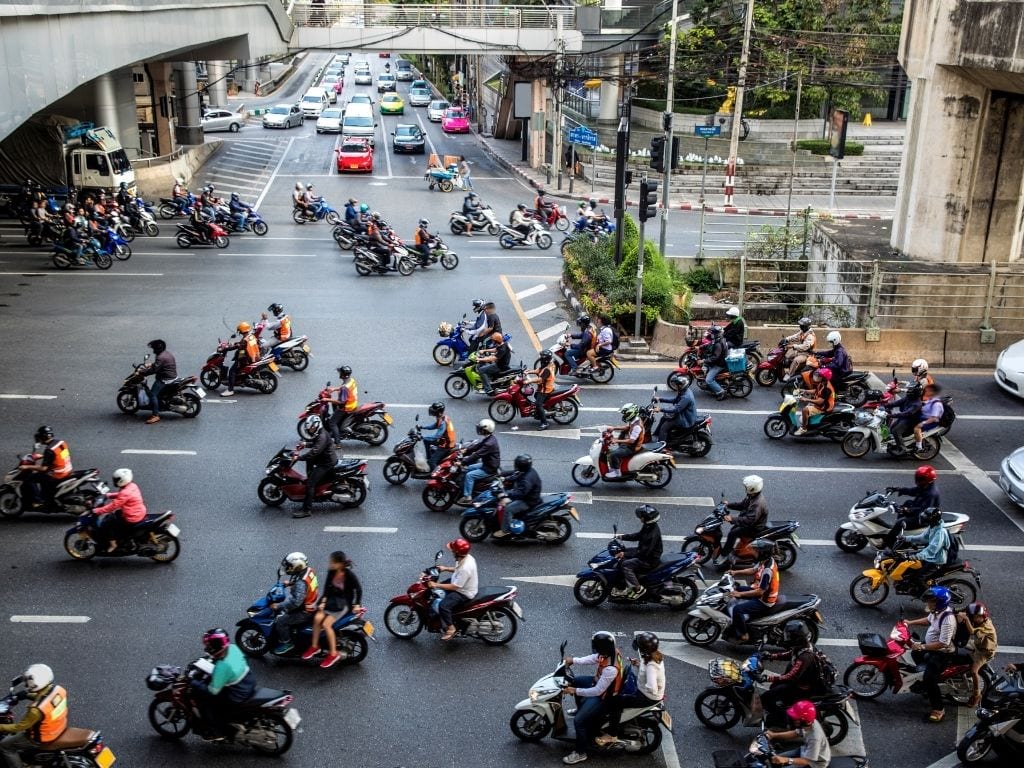
Motorbike taxis are popular in Thailand as it’s the fastest mode of transportation. It is common habit to see women sitting side-saddle on motorbikes. The most obvious reason is that they want to avoid any embarrassing wardrobe malfunctions if they’re wearing skirts or dresses. Anyway, you’ll regularly see women in both skirts and jeans sitting in this manner.
However, side-saddle sitting is not safe at all. It is very easy to be thrown off the bike when the driver makes an unexpected brake or turn. Make sure you sit properly and don’t forget to wear a helmet if you possibly can!
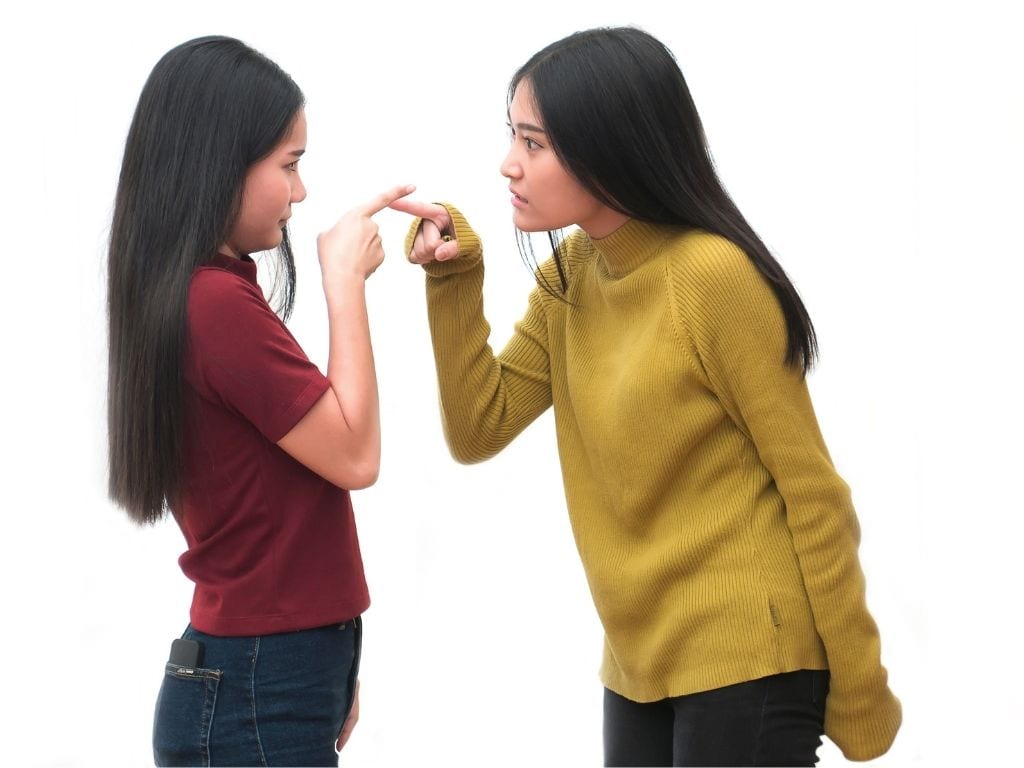
Buddhist beliefs lead many Thais to consider the head the most sacred part of the body. Whilst the feet are considered the ‘lowest’. As a result, Thais commonly avoid having their feet protruding or overly on show. Thais will often apologise if for some reason in a particular situation they are forced to put the underside of their foot on a particular show or to otherwise draw attention to their feet.
Likewise, it’s a common custom in Thai society to avoid pointing as a means of drawing attention to something or someone. Pointing is seen as an unnecessarily aggressive action in a culture that by and large practices non-confrontation. Needless to say, using your feet to point at or indicate something is a double no-no!

The humorous exception to the pointing rule seems to be a habit in photos in the Thai media of those at the scene of a crime or other incident. It’s hilariously commonplace for photographers to encourage those in the shot to point at whatever has taken place.
If you need to pass someone who is sitting down and you are physically in a higher position than them, it is common to dip your head and shoulders slightly as you pass through. As a way of acknowledging the situation and implying that you don’t mean to consider yourself better than or superior to them.
Moreover, it’s a common display of courtesy when passing two other people who are standing, perhaps in conversation, and your movement briefly gets in their way, you don’t actually end up towering over them.
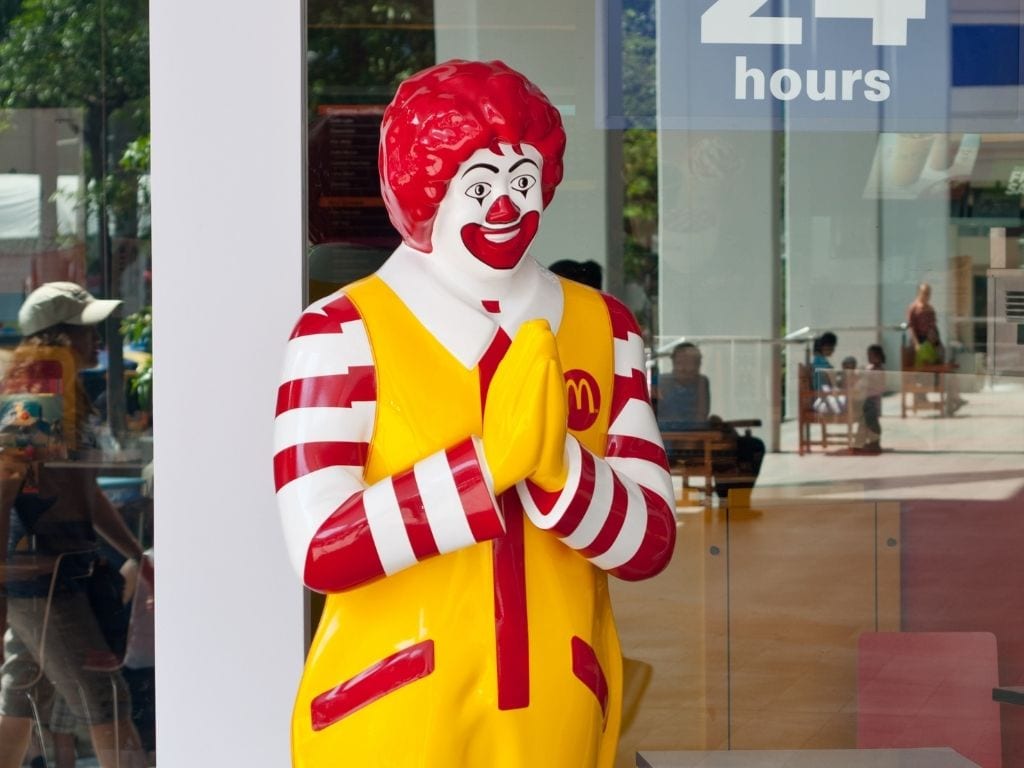
This is a Thai custom you can not avoid. Most visitors to Thailand quickly become accustomed to the “wai”. This is the Thai greeting style pressing your palms together and bending you head.
What first-timers might not know is that there are numerous different variations to the wai. Each one used to indicate a specific level of respect. The simplest explanation of the varying degrees of the wai is that the higher the hands reach, the more polite and respectful the gesture.
Your fingertips might reach your chin when you meet friends or greet back to younger ones. Your fingertips reach your nose if meeting someone that is older or is considered significantly “superior’. The fingertips extending to eyebrow level is used for paying respect to monks. While the most extreme versions of the wai, with the hands raised right above the head (and indeed extending to prostrating on the floor) are usually reserved for the royal family.
Of course, there is no real black and white here. You’re much better off simply doing what feels right, and following the lead of others! If someone greets you with a Wai it is polite to Wai back. However, the common mistake made by foreigners is to initiate a “wai” everyone, including waiters and hotel staff, when they are the ones who should greet you.
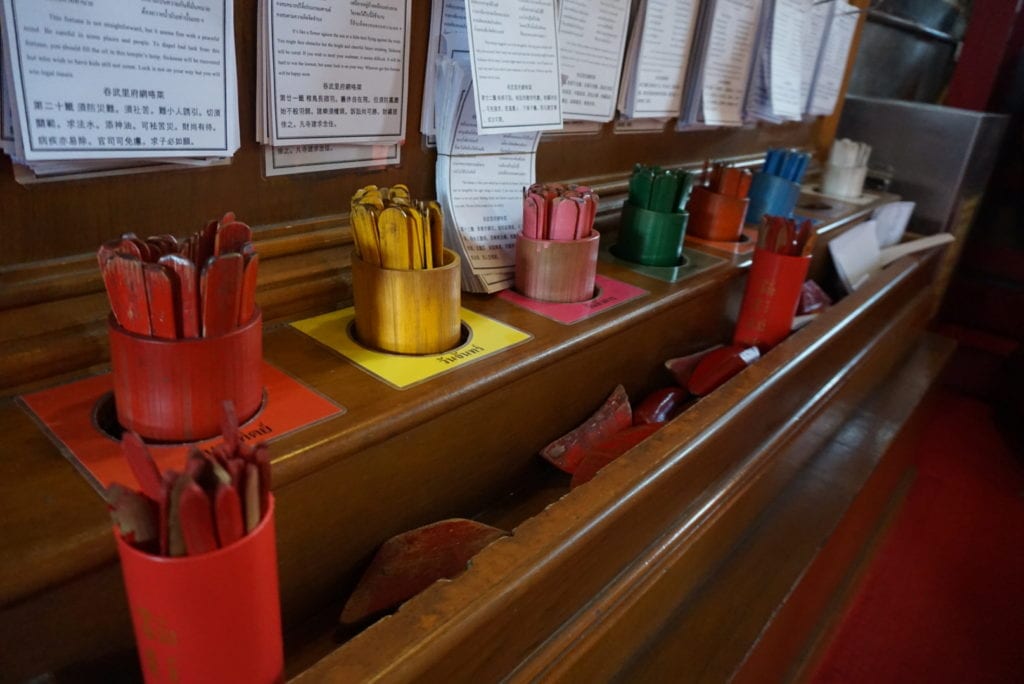
Influenced by Buddhist and Hindu beliefs, many Thais believe that individual colours are auspiciously connected to specific days of the week. Also, each person’s ‘lucky colour’ is the one associated with the day of the week on which they are born. Yellow for Monday, pink for Tuesday, green for Wednesday, orange for Thursday, pale blue for Friday, purple for Saturday, and red for Sunday. Wearing an item of clothing of the ‘correct’ colour for the day in question can bring good luck.
The most obvious manifestations of this in popular society is wearing clothing of colours corresponding to the days of the birth of members of the royal family. And the flags associated with those members of the royal family are done out in those colours. Yellow on a Monday for the late King Bhumibol and the current King Vajiralongkorn since they were both born on a Monday, pale blue for Queen Sirikit’s Friday birthday, and purple for Princess Sirindhorn’s Saturday birthday.
Remembering people’s names can be enough of a headache in any country. But newcomers to Thailand often have to contend not only with a person’s real name but also a nickname. Most Thais are given nicknames by their parents at birth.
These nicknames don’t necessarily relate to a person’s physical appearance or character. Choices like ‘Pig’ (‘Moo’), ‘Fatty’ (‘Ouwan’), and ‘Noi’ or ‘Lek’ (‘Little’ or ‘Small’) might seem somewhat disparaging but they’re not intended as a description of a child.
Indeed, Thai parents’ approach to choosing nicknames has notably changed somewhat over the past few decades. And fads these days include opting for English-derived nicknames such as Pancake, Believe, Ball, Golf, Bank, Boat, and Bird. Even much more out-there choices of brand names like Benz (as in Mercedes), Pepsi (as in the type of cola), and Airbus (as in the plane).
Whatever the trends, the overriding belief behind these nicknames is that they ‘confuse’ those evil spirits we talked about earlier. The spirits are believed to only know children by the name given at birth. Therefore, when they seek to kidnap a child or wreak other ill or destruction on him or her, they are suddenly confounded. As they were expecting a Thongchai and so have no idea who this kid called Wi-Fi is.
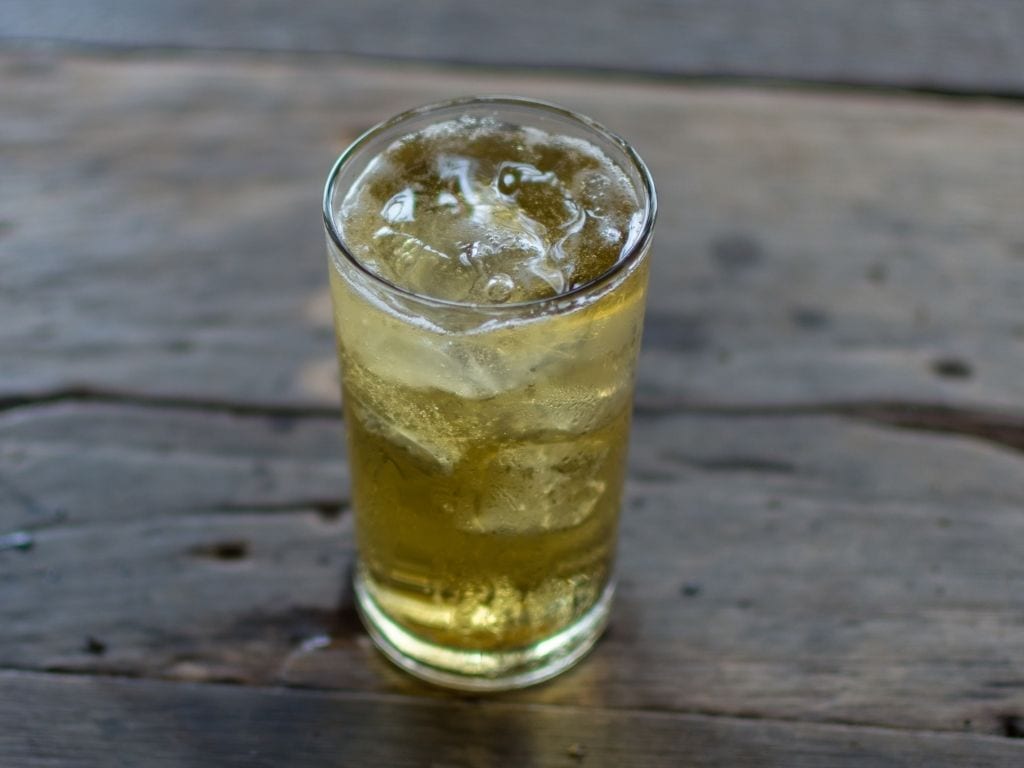
In Thailand, it’s common habit to drink beer with ice. Probably, it’s because of the heat that makes many Thais like to add ice in any drinks including beer. When you order beer either a bottle or a can, you will be served a glass with a small bucket of ice.
It’s like a default option. If you don’t tell them you don’t want, you will get it for sure. But eventually you may start to like it with ice, as long as it does not get too diluted!
As an added extra here are a few extra random beliefs:
If you liked this article you may also be interested in:
Also check out Random Thainess for more random facts,
At Expique our mission is to help people discover the real Bangkok (and beyond) and the local cultures. We do this through a combination of offering our own award winning tours and through producing informative content.
Our range of experiences in Bangkok including our award winning Bangkok Night Lights Tuk Tuk Tour and our foodie extravaganza Evening Food & Tuk Tuk Adventure.
Subscribe to our newsletter to receive monthly news and tips about exploring Bangkok.